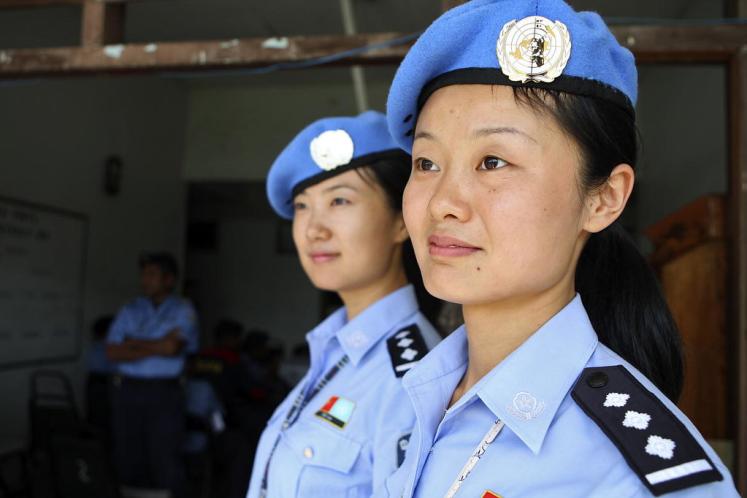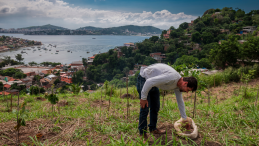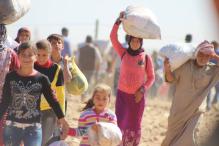With the rise of transboundary threats, exacerbated by the recent global pandemic, a regional approach to preventing conflict has never been more crucial. The UN’s regional political offices play a vital and unique conflict prevention role. And yet, only three such offices exist. Research completed for Back from the Brink explores the value-added of two such offices, examining how they work and the difference they make to the UN’s efforts to prevent widespread conflict.
The first office, the UN Office for West Africa (and subsequently the Sahel), was established, following an exchange of letters between the Secretary-General and the Security Council in 2002. Its primary purpose was to engage with its immediate region on peace and security issues – in contrast to the UN country team, which, at the time, was more focused on development support. This office, since its establishment, worked directly with its corresponding sub-regional organization – ECOWAS or the Economic Community of West African States.
In the years since, the UN has established two more formally mandated regional political offices, one in Libreville, Gabon, focused on Central African States and one in Central Asia, located in Tashkent. While each operate in very different political contexts, they have all been cited as having played critical roles in coordinating international engagement to deescalate conflict in their respective regions.
Given these findings, the UN Department of Political and Peacebuilding Affairs has sought to establish more offices, primarily in South Asia (based in Kathmandu, Nepal) and in Southern Africa (based in Mozambique). But such offices require a substantial financial investment and political buy-in from the region. As a result of these hurdles, subsequent efforts to establish additional offices have yet to bear fruit. In the interim, the UN has relied on the proliferation of more informal political presences to support UN Headquarters through moments of political crises, including liaison offices, regional and sub-regional organizations, regional envoys and regional peace and development advisers.
The effectiveness of each regional office is shaped, in part, by the values, age, unity, and priorities of their corresponding regional bodies. For example, consider ECOWAS. Established in 1972, and reformed in 1993, it promotes a norm of two-term limits and non-democratic changes of government – norms that it was ready to defend, if need by force, in the case of The Gambia in early 2017. In contrast, consider the Economic Community of Central African States – or ECCAS. It was established in 1983 and is built on a pack of non-interference. Given that the average tenure of Central African Heads of State is over 17 years, one can see that ECCAS members’ expectations on term limits differ substantially from those of its West African counterpart, ECOWAS.
As a consequence, the UN is limited in what it can do politically in one region versus another, given the differing regional contexts. The UN is more constrained in its ability to fall back on arguments regarding representativeness and legitimacy of public institutions in Central Africa, given a prevailing environment that favors the inviolability of sovereignty over these other public goods. Whereas in West Africa, UN efforts are bolstered by the prevailing regional norms.
Back from the Brink considers two recent cases of UN involvement in crisis management, one in The Gambia (in West Africa) and one in Gabon (in Central Africa). Both countries had long-entrenched leaders (or at least family legacies in the case of Gabon). Both countries saw the rise of formidable opposition coalitions seeking to unseat the incumbent. Both countries saw contested elections that risked spiraling into widespread violence. Both cases benefitted from the preventive diplomacy efforts of the UN’s respective regional political offices. But in The Gambia, under ECOWAS’s wing, de-escalation came through unified regional-UN cooperation around a common set of values: to defend the independence of the election commission, to deter and then prevent further intimidation of opposition representatives and supporters, and to protect the space for a peaceful and democratic transfer of power.
In contrast, in Gabon, which falls under ECCAS’s wing, de-escalation was achieved through a re-enforcing of the status quo. This was in spite of the fact that domestic, regional and international actors contested the results and criticized the transparency and impartiality of the Court used to determine the final outcome. If anything, members of both the Gabonese opposition and international observers spoke of how the region seemed to “look the other way,” given, as one former ECCAS observer surmised, “none of the leaders wished to point out the splinter in [Gabonese President Bongo’s] eye, lest the world notice the board in their own.”
Despite this less permissive political environment, UNOCA – the UN’s Central Africa regional political office, enables the UN to do more than if it had no office at all. While most international actors were related to the margins of process, the Head of UNOCA, Abdoulaye Bathily, succeeded in nudging the incumbent to release the opposition members arrested through overwhelming force and persuaded the leader of the opposition – Jean Ping – to forgo responding with violence while awaiting the decision of the Court. Such discrete and well-timed influence would have been impossible without the essential pre-crisis, in-country work of establishing relationships fostering understanding of the conflict dynamics and building credibility and trust vis-à-vis the parties.
A permanent political presence on the ground affords UN officials far greater dividends in terms of time to build relationships with key parties, proximity to key stakeholders, and access to broad information. Periodic, mad-dash missions from UN Headquarters afford no such benefits. And thus, it is well worth the UN further exploring the establishment of additional regional political presences, despite the novel challenges to the UN’s room for maneuver that some regions may pose.
Suggested citation: Dr Rebecca Brubaker, Dirk Druet., "Why the World Needs More UN Regional Political Offices," UNU-CPR (blog), 2020-06-25, https://unu.edu/cpr/blog-post/why-world-needs-more-un-regional-political-offices.




